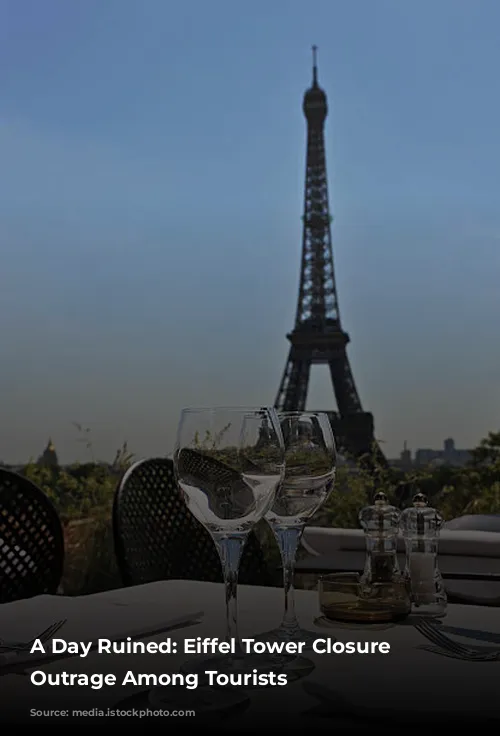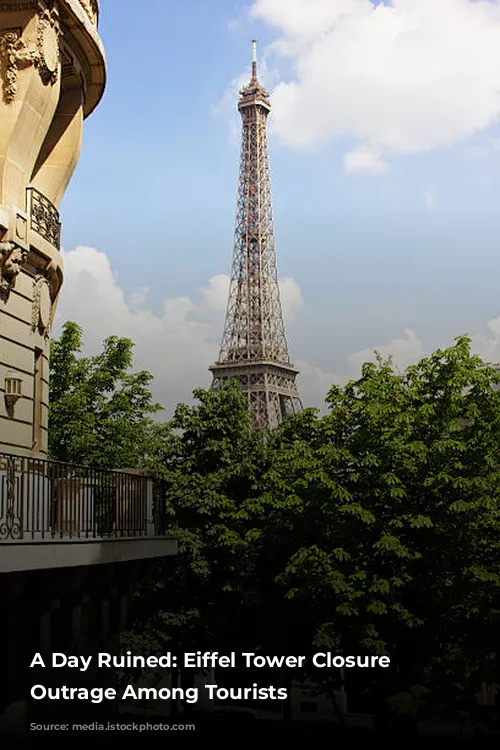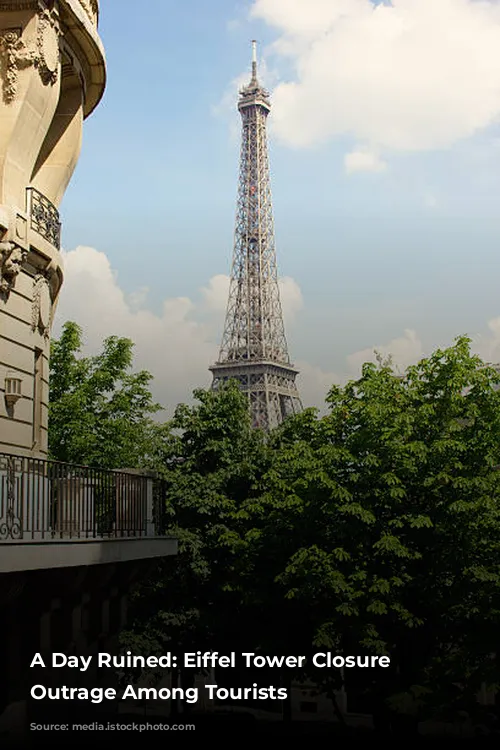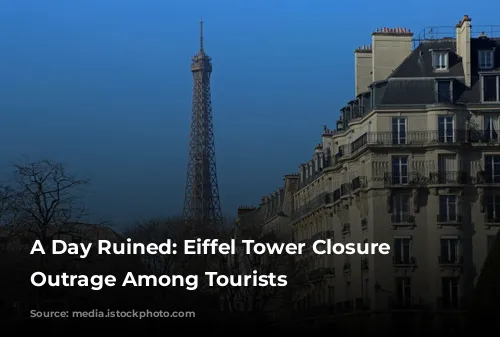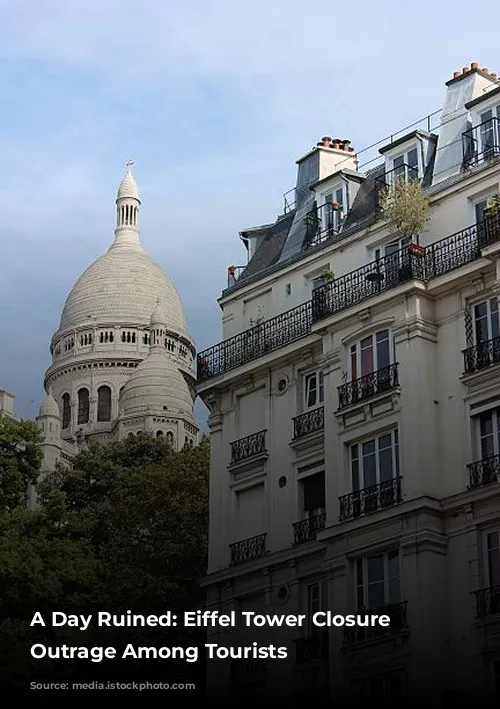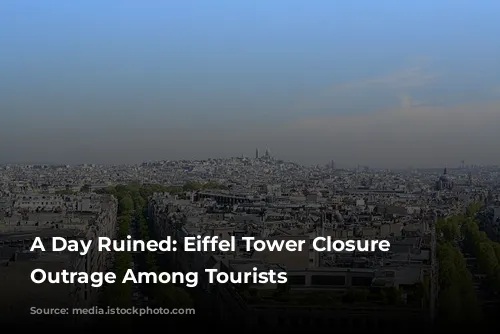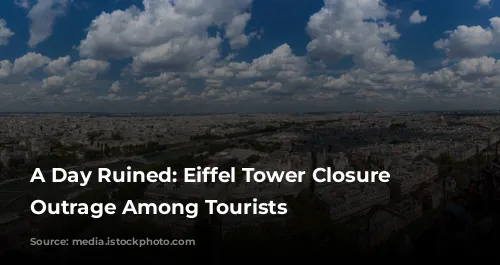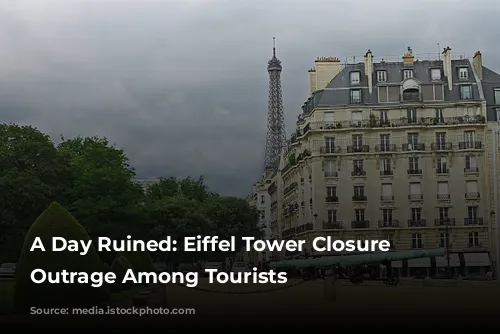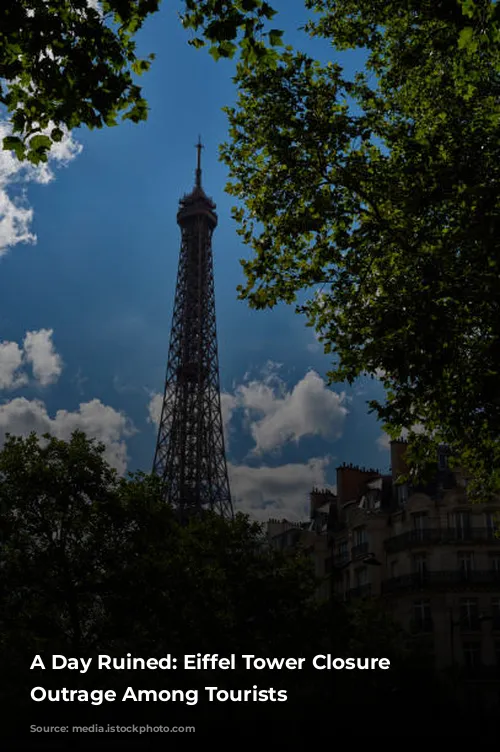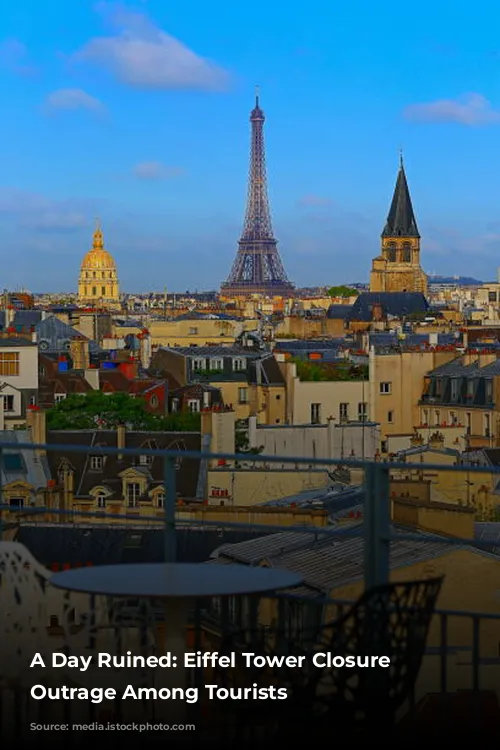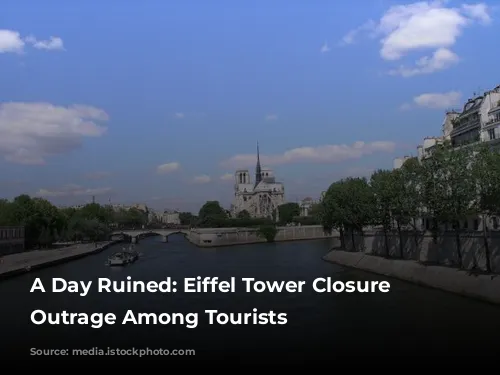The iconic Eiffel Tower stood silent, its gates shut tight, causing a wave of frustration and disappointment among eager tourists who had travelled from far and wide to witness its grandeur. The closure was a direct result of a rolling strike by the tower’s employees, demanding better management practices.
“My dream is shattered,” lamented Lyra, a young Londoner, sitting forlornly outside the entrance, her eyes filled with sadness. She had been looking forward to visiting the Eiffel Tower on her tenth birthday, a day she had been eagerly anticipating. But the sudden closure had turned her birthday wish into a bitter disappointment.
“There wasn’t even a single message,” exclaimed Irina Goncherenko, Lyra’s mother, expressing her frustration at the lack of communication about the closure. Their trip to Paris was supposed to be a special one, especially on this “big day” for her daughter.
Gabriel Mimica, an Argentinian tourist, echoed the same sentiment. He was equally “surprised” by the strike, as he had meticulously planned his day around a visit to the tower. He was left with little choice but to rearrange his itinerary, giving up on another attraction to see if he could catch a glimpse of the Eiffel Tower in the remaining days of his trip.
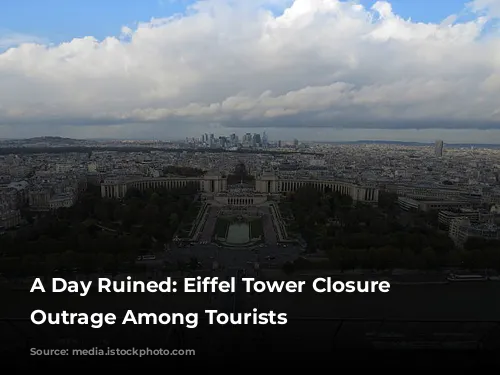
Disappointed Tourists and Anxious Unions
The disappointment was not limited to individual tourists. Elie Bou-Khalil and Chama Ghaiti, a young couple from Pau, were also “disappointed” as they were about to “turn 25,” making them ineligible for the youth discount. The closure meant missing out on the chance to see the tower at a discounted price, a small consolation in an otherwise disappointing situation.
Courtney Scott, an Irish tourist, described herself as “devastated.” She and her boyfriend had left their baby at home to enjoy a romantic getaway, and now they were denied the opportunity to ascend the tower.
Behind the tourists’ distress, however, lay a deeper concern. The strike was organized by two prominent unions, CGT and FO, who were “alarmed” by the “current management practices” leading the Société d’exploitation de la Tour Eiffel (SETE) towards “serious difficulties.”
The unions primarily targeted the City of Paris, the majority shareholder, accusing them of imposing an “unsustainable” model on the company. The COVID-19 pandemic had severely impacted the tower’s financial stability, creating a deficit of approximately 120 million euros between 2020 and 2021.
Despite a recapitalization of 60 million euros in the same year, the “fundamental model” that called for an increase in the royalty paid to the city “remained unchanged,” lamented Alexandre Leborgne, a CGT representative.
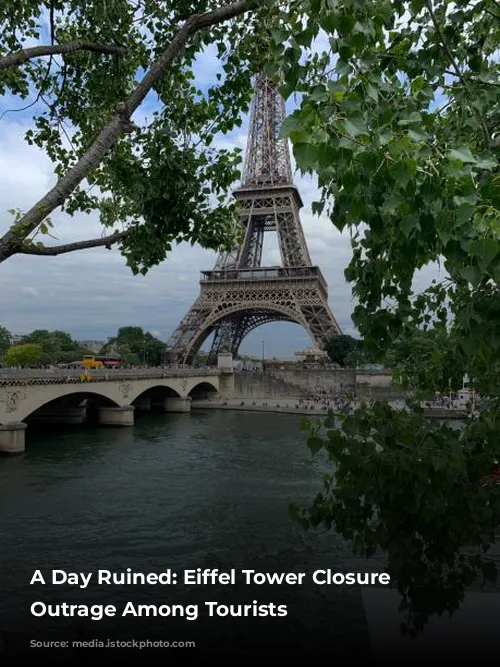
Concerns over the Tower’s Future
The unions also expressed their “concerns” over the rising costs of the recent renovation projects, which had increased by 128 million euros since 2019. Despite significant investments, they highlighted the presence of “numerous corrosion points,” indicating a “worrying degradation” of the 135-year-old monument.
The recent painting campaign, undertaken in preparation for the 2024 Olympic Games, was particularly criticized. The unions argued that the campaign had seen “costs skyrocket,” with 100 million euros invested for only 3% of the tower’s surface being stripped. They demanded the creation of a special endowment fund to address future “colossal expenses.”
The SETE management, responsible for the tower’s operation, did not immediately respond to the AFP’s request for comment.
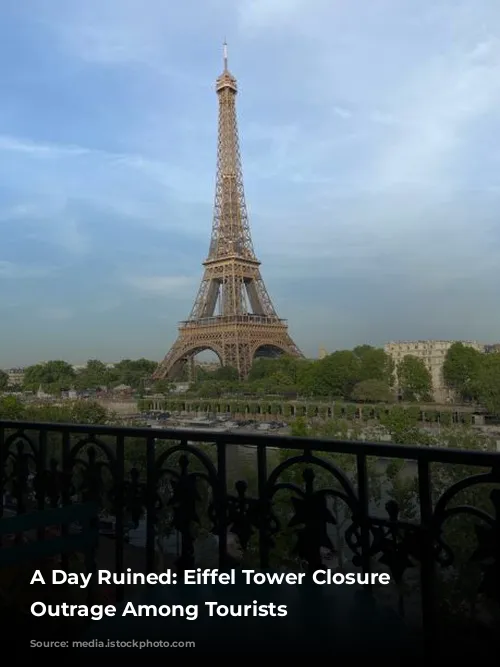
A Symbol Under Strain
The Eiffel Tower, inaugurated in 1889 for the Paris Universal Exposition, has become synonymous with the French capital and the nation itself. In 2023, it received 6.3 million visitors, surpassing the pre-pandemic numbers of 2019.
The recent closure marks a series of disruptions in the tower’s operations. In the spring of 2023, a ten-day closure occurred due to a nationwide strike against pension reforms. The tower was also shut down on December 27th, the centennial anniversary of Gustave Eiffel’s death, in protest against “unrealistic” management practices.
The Eiffel Tower is expected to remain “closed throughout the day” on Monday, as negotiations between the unions and management begin. A decision on the continuation of the strike is expected to be made on Tuesday morning. While the iconic landmark stands silent, the future of the Eiffel Tower, a symbol of French ingenuity and resilience, hangs in the balance.
